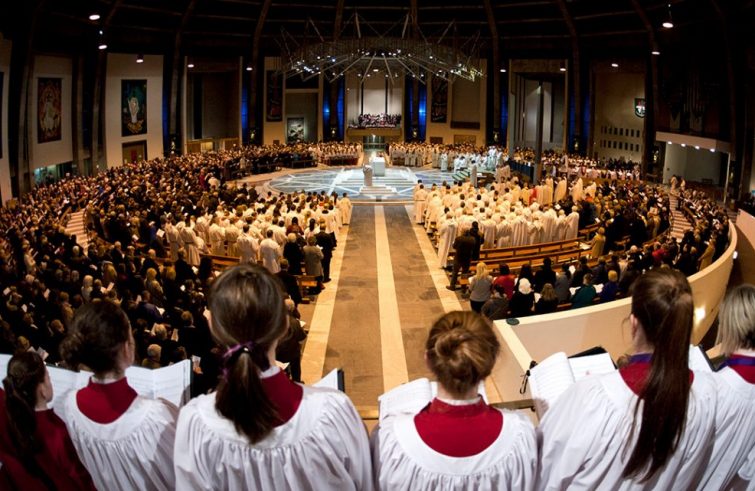
It is now the turn of the bishops. Through their charism of discernment they accompanied their communities throughout the synodal process that began last October. At this very moment, in England and Wales, the bishops are submitting their contribution to the final document that will be sent to the Synod Office in Rome by the end of July. Speaking to SIR, Rev. Canon Christopher Thomas, General Secretary of the Bishops’ Conference of England and Wales, describes the changes taking place in his Church since its response to Pope Francis’ appeal for renewed dialogue and unity last October.
“We are well on track,” says Fr Thomas. “Some very interesting themes emerged from our meetings in parishes and dioceses. There is a need to enhance the role of women, at the forefront of efforts right now, and to bring in young people, who told us that in the church they found a unique space of inner peace, which is so hard to find in such a hectic and fast-paced society. There is also an urgent need to identify a specific role for the laity, in canon law, that has hitherto been lacking.”
Has all this resulted in the Synthesis Document (available on the website of the Bishops’ Conference)?
Indeed. All 22 dioceses in England and Wales sent in their reports before Easter, the result of the listening process began in Autumn 2021. Since then, until early June, the National Synthesis team drafted a document that was submitted on June 1st, during ‘National Synod Day’ at St. George’s Cathedral in Southwark.
Has the Synod been addressed in different ways by each diocese?
It has. Some have only carried out online surveys. Others complemented them with in-person meetings at parish and diocesan level. Most importantly,
Those participating in this process informed us that they enjoyed it as an enriching experience and told us that they wished to continue.
Which changes are under way in the Catholic Church in England as a result of the Synod process?
Some remarkable opportunities for discussion are opening up. On June 1st, Synod Day, I was told by several people that Catholics feel valued, and that they are experiencing a renewed yearning to engage because they are being consulted and asked, in a direct way, to share their thoughts on the mission of the Church and the tools necessary for proclaiming the Gospel in today’s world. Requests for improved formation with a view to renewed encouragement to disseminate the joy brought by the Gospel in people’s lives came from every diocese. Likewise, it was felt that the Church should become a place of welcome and integration, where no-one is left out.
Has there been any major novelty?
Reports from the various dioceses mentioned that
the language that is used by the Church is often too difficult, for those not attending daily liturgies, and that the message of the Gospel should be expressed in simpler terms.
The role of women was also a constant theme. As one diocese stated in its report, “they do the hardest jobs but are very often excluded.” Some dioceses have asked for women to be ordained as deacons and priests.
What about young people?
Some dioceses voiced a wish for greater involvement of the young, since once they enter university, having completed their high school education in Catholic schools, they tend to drift apart.
Young people emerged as very passionate about helping the poor and needy, keen to help marginalised groups, extremely concerned about the environment, and actively involved in developing countries
through two Catholic charities for aid to the poorest countries: the Catholic Agency for Overseas Development (CAFOD) and Christian Aid.
Have young people had the opportunity to express their views?
They have. Young people pointed out that in the church they feel at peace, safe, distant from the hustle and bustle characterising our societies. They said they experienced a sense of serenity in the presence of God, and were thus able to relieve their stress. Regrettably, some reports mentioned that many young people felt disconnected from the life of the Church. In the final report the latter used a very beautiful expression. They said that
they wished to ask the Church to focus less on rules and regulations about how everyone should behave and more on shared spaces to grow together in the love of God.
The latter should be a positive factor in our lives and give us energy, nourish us. Young people also voiced their longing for communion, the need to be part of a community and the desire to be, collectively, faithful and true.











